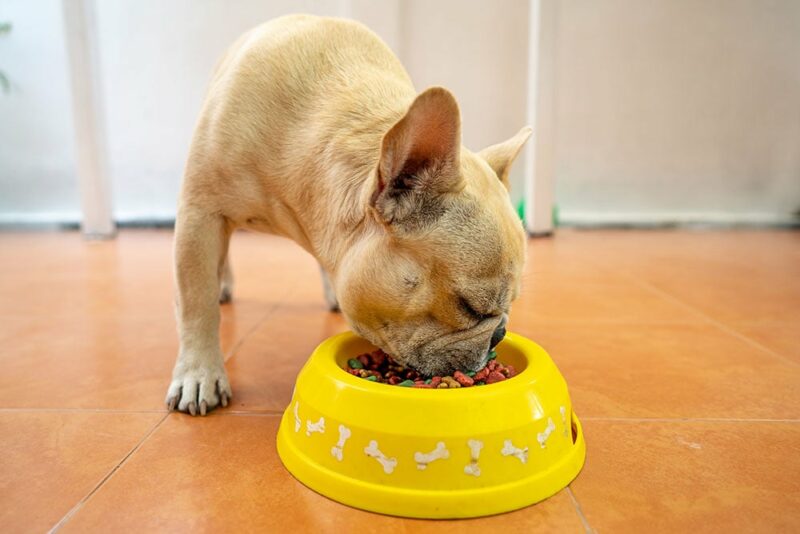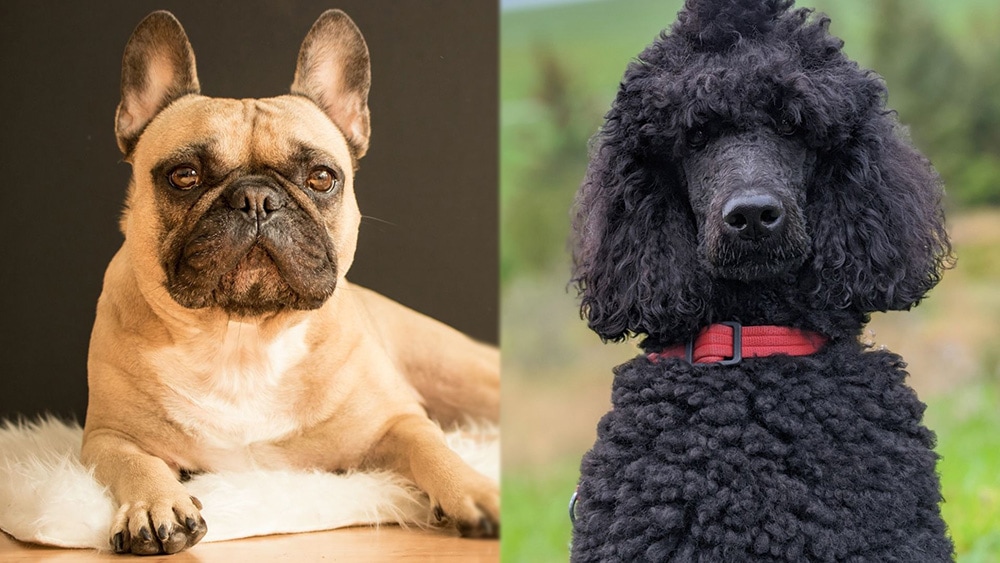My Dog Killed a Squirrel! 10 Things to Do Next
Updated on
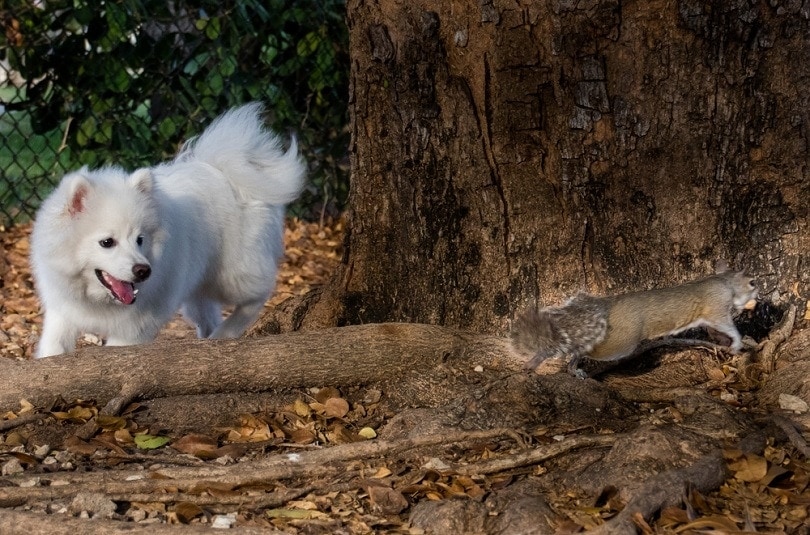
Anyone who has ever walked a dog knows how interested they are in squirrels. Chasing squirrels can be a dog’s favorite pastime! While most dogs will never actually catch one, it does happen. Then, of course, the predatory instinct will kick in, and before you know it, the squirrel has been chased down and killed.
There are likely several different thoughts that you have at this time. Everything from feeling bad about the squirrel to wondering about any diseases that your dog might have picked up.
Here, we cover 10 things to look out for and other steps to take, as well as if you should be worried about your dog after the squirrel encounter.
The 10 Things to Do When Your Dog Killed a Squirrel
1. Don’t Worry About Rabies
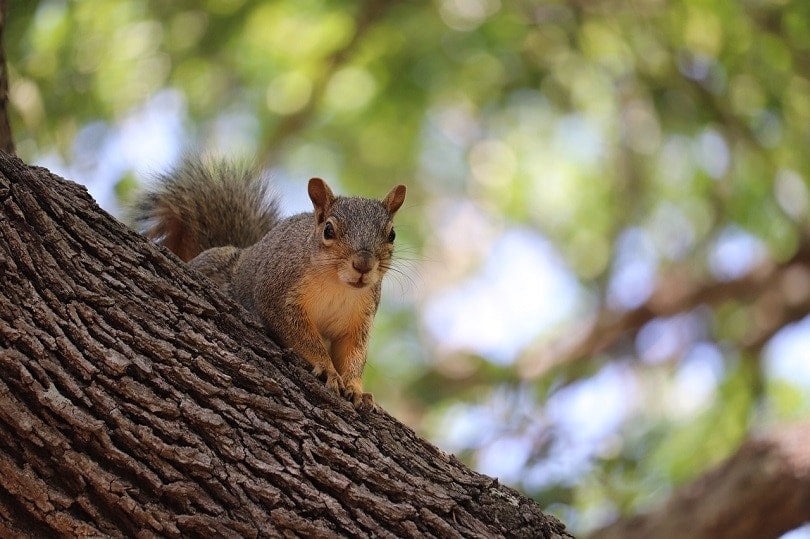
Rabies will always be the most significant concern that a dog owner will have when their dog interacts with wildlife in any way.
The good news is that squirrels are rarely infected with rabies (the same goes for rabbits, birds, and other small rodents).
Rabies will kill a squirrel before it can infect anything else, and a dog can’t contract rabies by eating it. Raccoons and bats are the animals that most commonly infect others with rabies.
2. Look Out for Worms
Squirrels carry worms, so it would be a good idea to have your vet check your dog for any possible worms or diseases. Roundworms are among the most common worms that dogs can get from squirrels.
The signs of a worm infestation can include the following:
- Vomiting
- Diarrhea
- Weight loss
- Dull, dry coat
- Bloated belly
- Excessive scooting
- Little white segments around the dog’s rear end and in their feces (these look like grains of rice)
Most dogs will appear unwell, and sometimes the worms will appear in their feces and vomit.
3. Check for Squirrel Bites
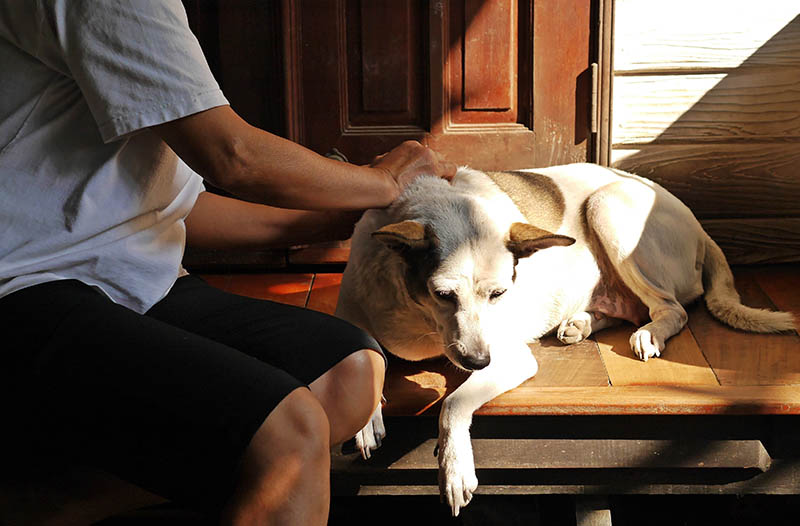
Before your dog killed the squirrel, there’s the possibility that your dog might have been bitten.
If the wound seems superficial, clean it with an antiseptic, and apply antimicrobial cream a few times a day. Keep an eye on it and watch for any redness or swelling.
A more serious wound, particularly a puncture wound, will always require vet care. It will need a deep cleaning and potentially, stitches.
4. Know the Dangers of Your Dog Running Off
Even the most obedient dogs can forget everything when they lock onto a squirrel and give chase. This can potentially lead to the dog getting hit by a car or running too far and getting lost.
Walking a dog off-leash has its advantages but definitely a few downsides too. You should be sure your dog is well-trained and ready to walk without a leash before attempting it.
5. Watch for Leptospirosis

The chance of your dog catching leptospirosis from a squirrel isn’t huge, but there’s always the possibility. This disease is contracted through the urine of an infected animal, such as a squirrel.
It has the potential to become fatal, so it’s an emergency situation when your dog becomes infected. Leptospirosis is also transmissible to humans and other pets.
6. Check for Ticks and Lyme Disease
While squirrels don’t have fleas, they do have ticks. With ticks comes the potential for Lyme disease, which has the following signs:
- Loss of appetite
- Joint inflammation and pain
- Lameness
- Fever
- General illness
If left untreated, it can lead to kidney damage. Fortunately, it’s treatable, and your dog should be receiving annual tick, flea, and heartworm preventative treatments, anyway.
7. Look for Signs of Rodenticide Ingestion
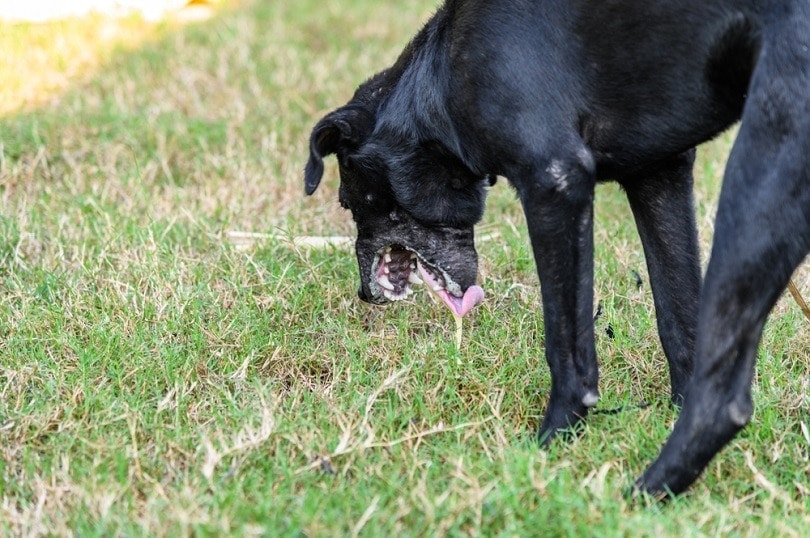
This is not that likely, but there’s a chance that a dog might eat a squirrel that has ingested rodenticides.
Some homeowners use poison to get rid of pests, and they might place the rodenticide around the perimeter of their homes. If a squirrel eats the poison and your dog eats the squirrel, your dog will have also eaten the poison.
While it will be diluted by that time, small dogs can still become quite sick. Signs can include:
- Diarrhea
- Vomiting
- Fatigue
- Bleeding nose or gums
- Bloody urine
- Difficulty breathing and panting
- Gagging and coughing or wheezing
- Seizures
If you see your dog with any of these signs after an encounter with a squirrel, go to your vet or nearest emergency clinic immediately!
8. Dispose of the Squirrel
When the deed is done, you will have a dead squirrel to deal with. How you dispose of it depends on your municipality and its bylaws, as well as where your dog killed the squirrel.
Generally speaking, if it happened on your property, you can bury it in your yard. Make sure to bury it deep enough that your dog can’t get at it.
If your community’s laws won’t let you bury it, place it in two garbage bags, and check with a local veterinary clinic to see if they can dispose of it. Otherwise, contact Animal Control, which will likely pick it up and dispose of it.
9. Stay Away From Dead Squirrels

If your dog didn’t kill the squirrel but found one already dead, eating that squirrel could lead to problems.
Food poisoning is a definite risk, as well as parasites and bacteria that can lead to serious illnesses. For these reasons, try to keep your dog away from any dead animals.
10. Don’t Punish Your Dog
Even if you feel horrified that your dog killed a squirrel, don’t punish your dog. This behavior is 100% instinctive and entirely natural for dogs.
Punishing them after they’ve accomplished something that they were bred to do will only confuse them. When a dog brings the squirrel back to you after the deed, they are actually bestowing a gift. Instead of punishing them, consider training them to not hunt squirrels.
Quick Tips
If you don’t want your dog to kill squirrels, you can train them not to do so. There are a few methods that you can use to tame your dog’s prey drive.
Remember, you must train and redirect in the moment. In other words, if your dog kills a squirrel, it’s already too late to do anything. Instead, the moment that your dog becomes fixated on a squirrel is when you redirect them. Keep them leashed throughout this process.
Additionally, if the problem is occurring in your yard, try to keep the squirrels out:
- Remove any food sources (including birdfeeders).
- Trim any long branches so squirrels can’t jump to your roof or other locations.
- Use lemon and orange peels in your garden. Cayenne pepper and garlic powder also work, and there are commercial squirrel repellents that you can try.
- A motion-activated sprinkler might work to startle the squirrels.
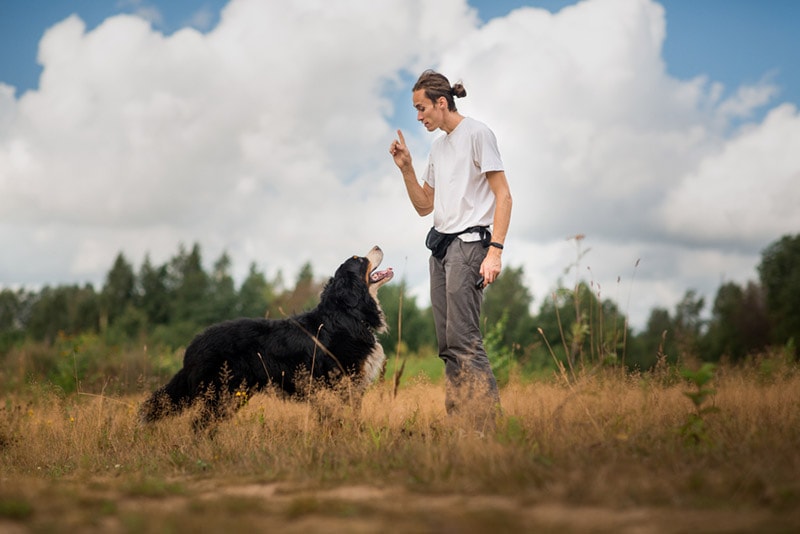
Conclusion
Hunting and killing squirrels is an instinct that is bred into dogs. It certainly helps explain why dogs seem to have such a fixation on them! It’s unlikely that your dog will get sick from eating a squirrel that they caught and killed, but it’s a different story with a squirrel that’s already dead.
But you know and understand your dog better than anyone. So, if you notice strange behavior or signs of illness after their encounter with a squirrel, take them to your vet immediately. It’s always better to be safe than sorry.
Featured Image Credit: RyanTaylor, Shutterstock


